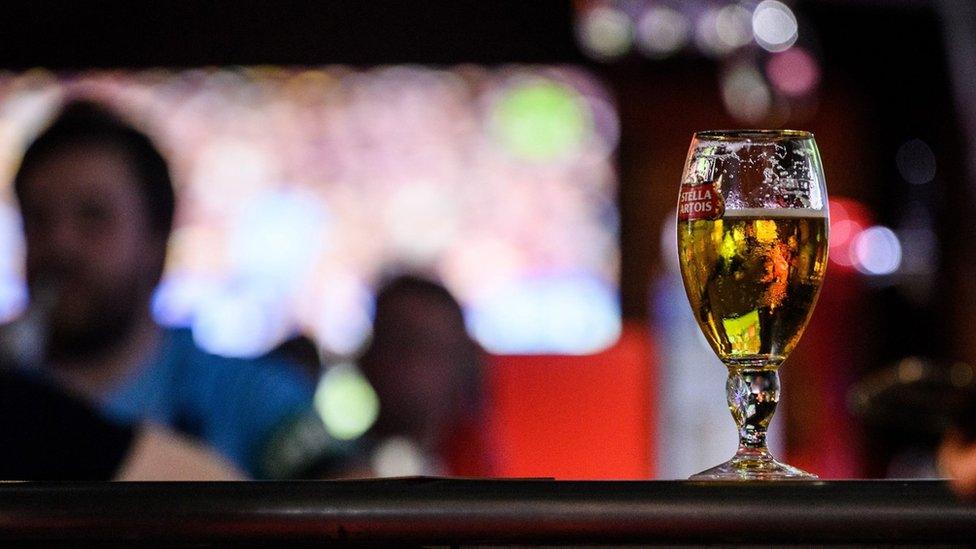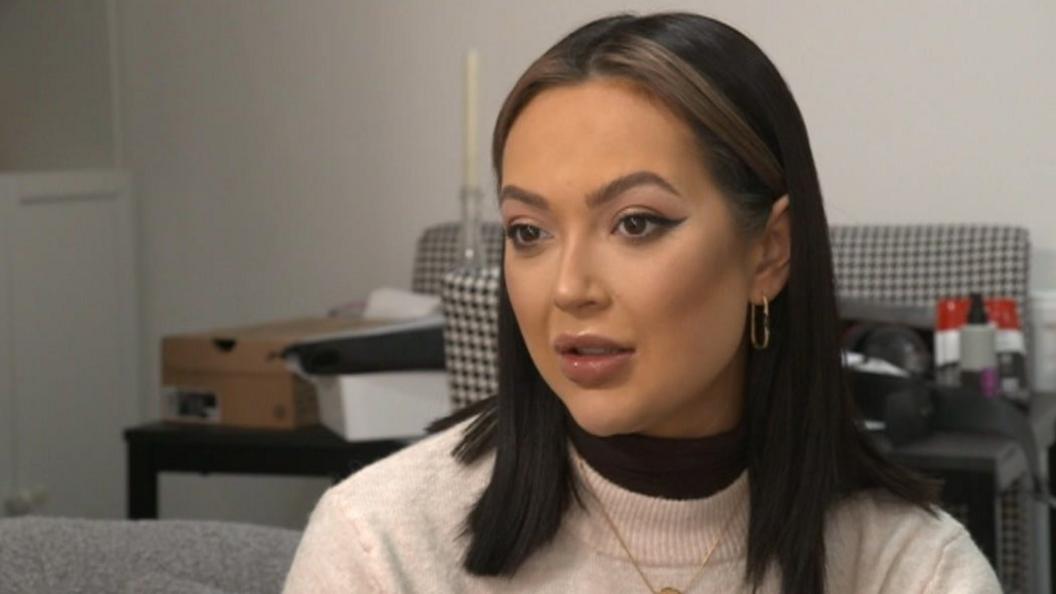Love Island's Sharon Gaffka urges spike victims to go to police
- Published

Sharon Gaffka said her "biggest regret" was not reporting her drink spiking incident to police
A former Love Island contestant is urging victims of spiking to go to the police as partygoers gear up for the New Year.
Sharon Gaffka, who was a victim of drink spiking herself, has been working with Thames Valley Police (TVP) "trying to change society".
The Didcot-based social media influencer said her "biggest regret" was not reporting her case to police.
New figures show there were almost 5,000 spiking cases over the last year.
The National Police Chiefs Council (NPCC) said it recorded 4,924 cases over the last 12 months to September - the majority split between needle and drink spiking.
A YouGov poll suggests 10% of British women have had a drink spiked, external and that nearly half of those aged between 18 and 24 (48%) said they have had a drink spiked or know someone who has.
Ms Gaffka, who appeared on the ITV show Love Island in 2021, said she was out with friends when her drink was spiked in 2020.
"I turned round to one of my friends and said I didn't feel right and was found unconscious in the ladies' cubicle toilets," she told the BBC.
An ambulance was called and she was taken to hospital but she took the incident no further.
"Unfortunately, outside of my friendship group, I didn't feel I had anyone to turn to," she added.
"My biggest regret to this day is never reporting it to the police."

There were nearly 5,000 cases of drink spiking over the 12 months from last September, the NPCC said
However, the reality show contestant told the BBC that since beginning her campaign with TVP "there are things I could have done to get evidence".
"We knew which was the last drink I had that might have been tampered with," she said.
"Obviously the drug can pass through your body very quickly but it would never leave that glass.
"My friends were OK so they could have taken that glass and we could have gone to the police with it, but we didn't know that. That's something I know now."
'Complex offence'
"I always get an increase of messages in my inbox telling me I was the one to blame," she continued.
"Regardless of what I was wearing it will never be my fault and it is never any victim's fault and that is something I am trying to change about society," she said.
NPCC Deputy Chief Constable Maggie Blyth said: "Spiking is a complex and challenging offence to investigate.
"In order to have the best chance of identifying drugs and bringing offenders to justice, our message to anyone who thinks they have been spiked is to report early and be tested by the police."

Follow BBC South on Facebook, external, Twitter, external, or Instagram, external. Send your story ideas to south.newsonline@bbc.co.uk, external.
Related topics
- Published20 January 2022
